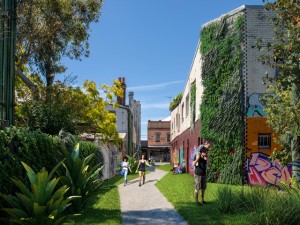
Design / Design Concepts / Environmental Management / Green Walls & Green Roofs / Landscape / Landscape Architecture / Landscape Construction / Landscape Design
Where Will all the Trees Be?
Green v Grey: What will our cities look like as temperatures and populations rise? Australia’s largest urban greening initiative has revealed 67 percent of suburbs and cities across the country will face significant challenges in growing and maintaining green cover in the future, as our cities grapple with a rising population, and grey spaces expand...
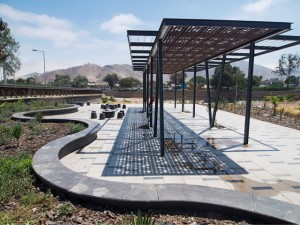
Design Concepts / Environmental Management / Landscape / Landscape Architecture / Landscape Construction / Landscape Design
Should the Grass be Greener?
Not all Parks Should be Green: 10 Tips to Design Landscape Infrastructure Does it make sense to design green parks in desert cities such as Casablanca, Dubai, or Lima? Ostensibly it does because they contribute freshness and greenness to the urban environment. In exchange, however, they disrupt native local ecosystems, incur high maintenance bills, and...
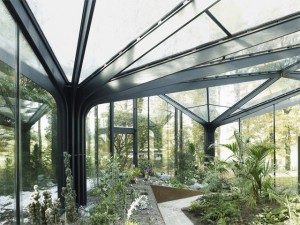
Design / Design Concepts / Garden and Public Art / Green Walls & Green Roofs / Landscape / Landscape Structures / Landscaping - Soft
How to Design a Greenhouse
Since at least as early as ancient Roman times, humans have recognised the value of what is now known as controlled environment agriculture, allowing farmers to cultivate plants year-round rather than seasonally. Though they were invented hundreds of years ago, greenhouses continue to be the most popular means of controlled environment agriculture today, with innovations...
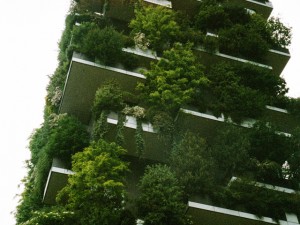
Design / Design Concepts / Erosion Control / Garden and Public Art / Green Walls & Green Roofs / Landscape / Landscape Architecture / Landscaping - Soft
Urban Designer Calls for Greener Neighbourhoods
Urban designer calls for a shift to greener, self-sufficient neighbourhoods with multifunctional streets in a post-pandemic world. The recent change in the way people live, travel and work presents a unique opportunity for urban developers and designers to improve issues such as the liveability of our neighbourhoods and access to public spaces. A Perth urban...
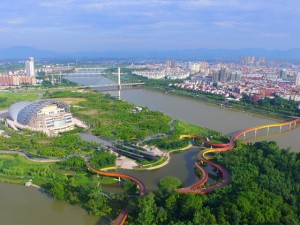
Design / Design Concepts / Environmental Management / Erosion Control / Landscape / Landscaping - Hard / Landscaping - Soft
A Guide to Flood-resistant Urban Landscapes
Climate change and rising sea levels are impacting the design and shape of our cities. Edward Barsley, author of Retrofitting for Flood Resilience: A Guide to Building & Community Design, outlines six key strategies for creating environments that are adapted to flooding. Yanweizhou Park by Turenscape In his book, Barsley outlines how urban and natural...
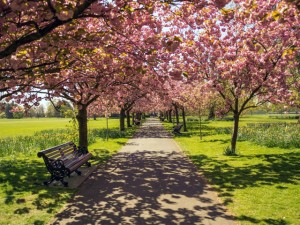
Won’t Somebody Think of the Children? Why We Should Design Cities Without Cars
More than half of Australian households own two or more motor vehicles, while only seven percent own none – we are, without a doubt, a car country. However, while countless advertisements celebrate the freedom cars provide, University of South Australia urban planning researcher, Hulya Gilbert, says there are growing reasons to question the cost of...
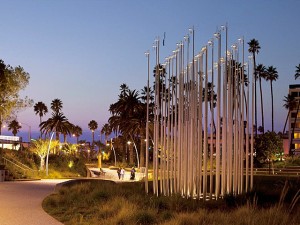
Design Concepts / Landscape / Landscape Architecture / Landscape Construction / Landscape Design / Landscaping - Hard / Landscaping - Soft
New Guide to Universal Design
The American Society of Landscape Architects (ASLA) has published a new Guide to Universal Design. According to the ASLA, one billion people, or 15 percent of the global population, experience some form of disability. The new guide explores the ways in how Universal Design means that everyone, regardless of ability or age, can access and...
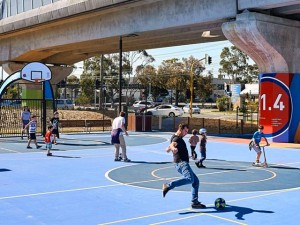
Big Doesn’t Always Mean Bad
Provision of well-engineered transport, energy and other service infrastructure is essential to good urban functionality. But as Australia undergoes an infrastructure boom, let’s not forget these major works can and should contribute to the social, cultural and human qualities of our cities. Urban infrastructure can range in scale, from the metropolitan to the human, from...
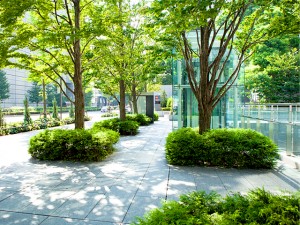
Design Concepts / Environmental Management / Erosion Control / Horticulturalists / Landscape / Landscape Architecture / Landscape Construction / Landscape Design / Landscape Structures / Landscaping - Hard
Green Infrastructure to Make Cities More Liveable and Sustainable
The Australian Institute of Landscape Architects (AILA) has released a Green Infrastructure Position Statement calling on non-government agencies, industry organisations and governments at all levels to make significant progress towards improving the liveability and sustainability of urban and regional settlements through Green Infrastructure. Green infrastructures are the strategically planned networks of natural and semi-natural areas...
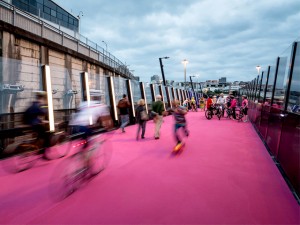
Design Concepts / Environmental Management / Landscape Design / Landscaping - Hard / Street and Outdoor Furniture
How Will Cycling Shape the Future of Our Cities?
NEXT Architects has curated the second annual Bicycle Architecture Biennale as a showcase of buildings that transform cities through cycling. Opening in Amsterdam, the BAB shows the work of international designers from around the world and explores urban design through social, economic and environmental projects. It was conceived by BYCS as a way to inspire...

Environmental Management / Green Walls & Green Roofs / Horticulturalists / Landscape / Landscape Architecture / Landscape Construction / Landscape Design / Landscape Structures / Street & Outdoor Furniture / Street and Outdoor Furniture / Uncategorized
RECYCLED IS THE NEW BLACK
With global consciousness about the environment growing, eco-friendly, recycled and composite products are becoming the new norm in the construction industry. The market for environmentally sound building materials is changing. If you think bamboo can just be used to grow beans up in your garden, think again. BAMBOO AND MODIFIED TIMBER Pandas aren’t the only...
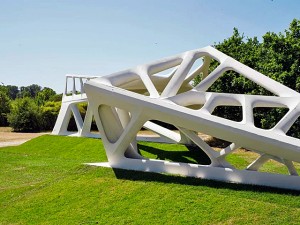
Design / Design Concepts / Drainage / Environmental Management / Garden and Public Art / Landscape / Landscape Architecture / Landscape Construction / Landscape Design / Landscape Structures / Landscaping - Hard / Solar Power / Storm & Waste Water Systems / Water Management
Shaping the Future of Urban Living
In the coming 30 years, Australia’s population is projected to increase by 11.8 million people – the equivalent of adding a city the size of Canberra each year for the next 30 years. As Australia’s largest cities face a watershed moment in their growth and development, many are looking far and wide to the next...









